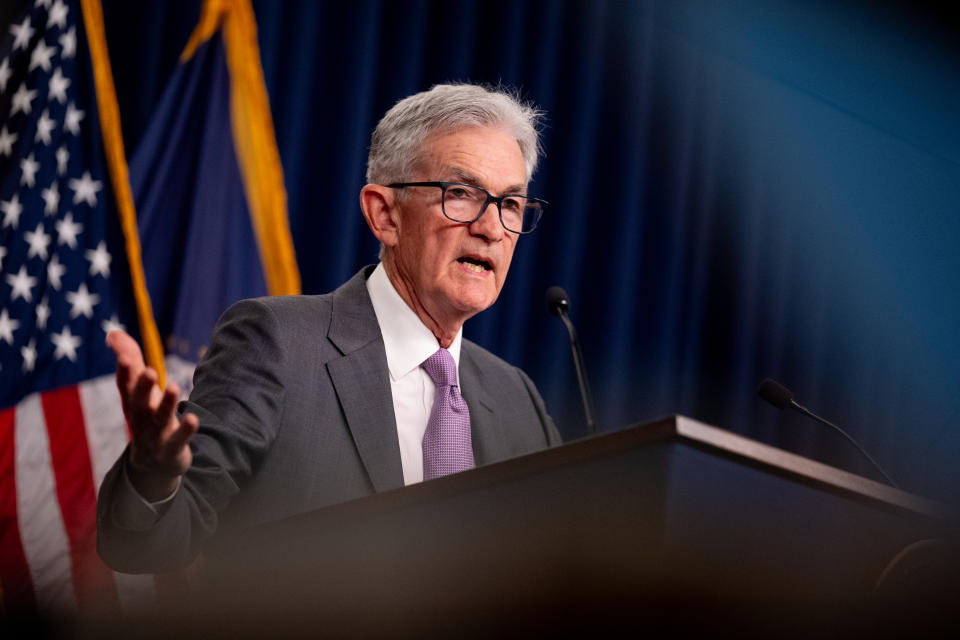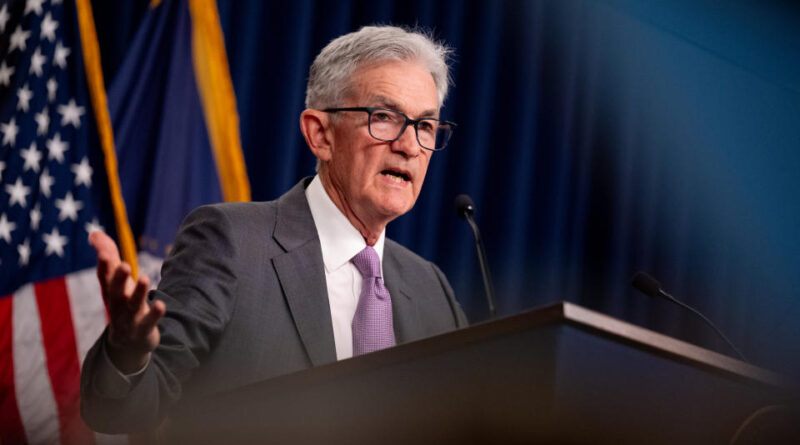Wall Street economists say investors’ fear of a recession is widespread
The market’s reaction to the weak July jobs report raised concerns the Federal Reserve made the mistake of holding rates at 23-year highs at their latest meeting.
And now, talk in some corners of the investment world has shifted from the timing of rate cuts to the timing of the recession hitting the US economy.
But several economists and equity experts believe that while recession risks have increased amid weak economic data, the last few days of market activity have been a fluke. extreme.
In an interview on Tuesday, Apollo Global Management’s chief economist, Torsten Sløk, told Yahoo Finance that the market is “overpriced.” (Note: Yahoo Finance is owned by Apollo Global Management.)
Investors quickly moved to price more than four interest rate hikes to 2024 after Friday’s jobs report, up from three seen after the Fed meeting on July 31. Commentators some in the market even suggested that the Fed should cut before its meeting in September.
Sløk added that, given the volatility seen in market capitalization in relation to the Fed’s rate cuts in the past trading session, investors should take what the market is saying with “a grain of salt”. salt.”
Sløk pointed to data showing consumers spending more on activities such as flights, dining and hotel stays to confirm that the consumer is showing little sign of a rebound this season.
“Overall, there is not much evidence that the economy is in recession or on the way to recession,” Sløk said.
A different design
The most troubling part of the July jobs report was the rise in the unemployment rate to 4.3%, a closely watched recession indicator. The report also showed monthly job gains fell to their second lowest level since 2020.
But for Deutsche Bank’s chief US economist Brett Ryan, the report still tells the same story of a labor market “supported by unemployment rather than strong hiring.”
“The nature of the increase in unemployment is different than what you would see at the beginning of a recession,” Ryan said.
The unemployment rate has increased more because of an increase in the labor supply — people entering the workforce for the first time or returning to work — rather than a rise in permanent jobs, Ryan argued.
“You don’t want to exaggerate one data point,” Ryan said. .”
For example, weekly unemployment reports just hit their highest weekly mark in nearly a year. But Ryan points out that if you exclude Texas, where floods from Hurricane Beryl displaced workers, the four-week average for initial jobless claims is still falling.
Bank of America US economist Michael Gapen took a similar position, writing in a note to clients that without a broad reduction, the case for a large emergency rate cut due to the strength of the market labor is less than the market price.
“The rate cut in September is now key, but we don’t think the economy needs a big cut,” Gapen wrote in a note to clients on Monday.
‘Dangerous assets can be recovered’
Some strategists also see the market’s strong reaction to this data as an opportunity to be more aggressive in the market.
The BlackRock Investment Institute, led by Jean Boivin, wrote in a note to clients on Monday that it thinks fears of a recession are “overblown.”
“We think risk assets may recover as fears of a recession subside and the rapid decline in auto sales stabilizes,” the BlackRock group wrote. “We maintain our overweight in US stocks, which are driven by strong AI, and we see the selloff creating buying opportunities.”
Seema Shah, chief global strategist at Principal Asset Management, agrees.
Shah pointed to the market’s turnaround on Tuesday when he told Yahoo Finance, “What you’re seeing now is a small test that maybe the economic problems are not as bad as expected.”
Shah added that the key for investors in this market period remains whether the macro story has fully changed. For now, he thinks it’s more of the same.
“We expect the US economy to slow down, but we don’t expect a recession,” Shah said.
“We expect the Fed to cut rates, but again, not have to cut rates aggressively. So, from that point of view, the background is basically unchanged for us.”


Josh Schafer is a reporter for Yahoo Finance. Follow him to X @_joshschafer.
Click here for an in-depth analysis of the latest stock market news and events that drive stock prices
Read the latest financial and business news from Yahoo Finance
#Wall #Street #economists #investors #fear #recession #widespread
